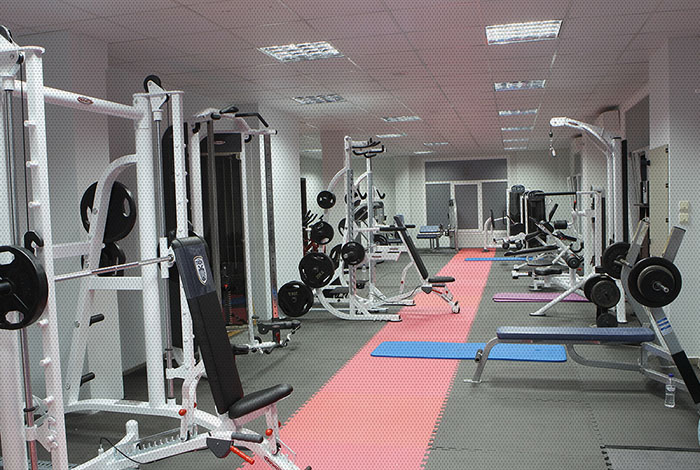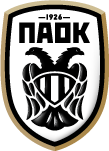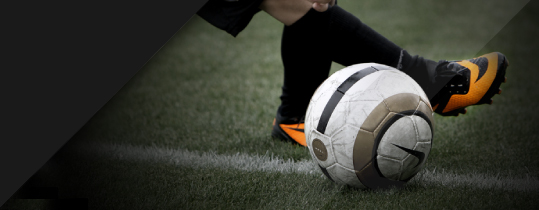
Scientific support
Children are chosen by the specialists based on their technical qualities and talents and not on their physical condition. Specialists who work at PAOK Youth and Developments Sections, such as ergophysiologist Giorgos Ziogas, say: “Even if the player has been blessed with good genes, he needs to train a lot and enhance his physical condition in order to bring himself to the level of a complete footballer”.
PAOK medical staff measure and assess the physical qualities of each child to ascertain whether and how they can be improved through proper training. Those measurements are held three times per year in all age groups over 14, in order to monitor:
# Endurance
# Explosiveness
# Strength
# Speed
# Muscle oxygenation
# When and how much fatigue kicks in.
Each year, all children go through meticulous medical tests, including a detailed examination by an orthopedic surgeon and a growth specialist. Especially in younger ages (6 to 12), a pediatrician specialized in growth monitors the children every month.
It should be noted that the “Double-Headed Eagle” are the only club in Greece in the last five years to keep a detailed record of all their athletes.
Emphasis on nutritional therapy
Nutritionist and laureate in physical education Ioanna Paspala is responsible for the boys’ proper nutrition. PAOK Academy have made it a point to hold monthly educational meetings on issues of Nutritional Therapy in relation with sports and most particularly with football, adjusting the topic on the age of the participants.
The main aim is to make children understand the basic concept of nutrition and its importance in sports performance and health. The diminutive athletes are also subjected to measurements of their body characteristics, in order to assess their physical development and dietary needs. Measurements are held every two months to record significant height/weight changes. Repeated control and monitoring of the players’ physical characteristics is a highly important parameter in sports, as research shows their direct correlation with sports performance.
Children are urged to keep a “Journal of Weekly Dietary Intake”. After filling it, they are welcome to discuss it in order to realize the healthy and not so healthy choices they made and how they can improve and enhance their nutritional options.
The role of psycho-education
PAOK FC also pioneer in offering psychological support to the children populating their academies, a role assumed by psychologist Irini Rera. Through collective and individual meetings and the organization of monthly conferences and forums, Mrs. Rera attempts to provide help to each child-athlete. She also aims for the gradual creation of a personality file for each player, an indispensible tool for anyone aiming to play high level football in the future.
Group meetings with the children are held every month per each team, in order to enhance the players’ performances through techniques such as self-conversation, relaxation and management of stress or disappointment. Priority lies in enhancing the performance of each athlete and not targeting those players who might have low football endurance.
As for the parents of the children attending PAOK academies, they are also trained through meetings organized by the club. They learn how to deal with their children-athletes, how to express their own expectations without burdening their off-springs, how to manage their stress, pressure and eventual lack of self-esteem.
The non-negotiable constant of education
Playing in a championship and combining it with school is no easy task. And by that we mean, obviously, the consistency, the mood for knowledge, and the time for systematic education. Children who engage in any sport at the top level – which, let’s be realistic, does not necessarily emerge along the way – must owe it to themselves to aim for the right education as a whole. A win on a Sunday on the pitch is not an end in itself.
And this is a constant for the PAOK Academy, which places special importance to the education of its players, especially those who live far away from their families, at the PAOK Academy House. PAOK collaborates with specific schools, so that there is a comprehensive and controlled picture of the young player’s attendance, and especially at the house, there is the opportunity for study, auxiliary courses and remedial teaching.
At the PAOK Academy we are proud of the players who, despite the long and daily training, are good students and even manage to be admitted to higher educational institutions, proving that it’s the will and the effort that make you a winner.
The head of the under-age players at PAOK FC on issues related to their school activity and their daily preparation as students is Ioanna Charalambous. She is a graduate of the Department of Philosophy & Pedagogy at the School of Philosophy of the Aristotle University of Thessaloniki, and holds a master’s degree in special education on «behavioral relationships of teachers who interact with students in difficulty, in collaboration with their families» at the University of Turin .
She speaks English and Italian, and is also fluent in Braille. Also on her CV, among other things, she has a six-month internship at the 3rd Elementary School of Evosmos, as well as her tenure as a teacher to students of all school levels in their daily preparation for school at the “Arsis” hospitality and support center for unaccompanied minors.






































